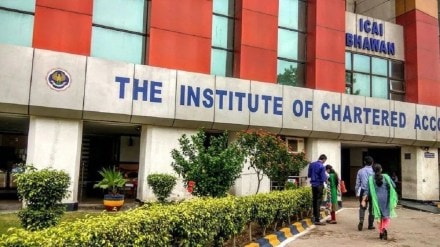The Institute of Chartered Accountants of India (ICAI) has proposed to significantly relax the regulatory regime for practicing chartered accountants (CAs), by allowing them to form partnerships with some other professionals, sponsor events and conduct web-casts, among other things.
In all, the ICAI has proposed 41 significant changes to the all-important Code of Ethics (CoE) that govern CAs in the country, in a recently released exposure draft.
In addition, the self-regulatory body has proposed changes in Council Guidelines for Advertisement, 2008 to make them more contemporary. ”. Under the CA Act 1949, CAs and their firms are allowed to advertise through “write-ups” wherein the write-up should not include the names of the clients (both past and present), and its font size should not exceed 14 points. The exposure draft has proposed to remove the limit on font size and the requirement to mention membership number/firm registration number (FRN).
As per the draft, practising CAs would be permitted to form partnerships with other professionals under insolvency professional entities (IPEs) and resolution vehicle entities (RVEs).
The draft has also proposed changes to the guidelines on fees, and auditor independence. It has proposed insertion of new independence provisions like non-acceptance of audit work for public interest entities (PIEs) such as listed companies where the auditors have provided non-audit services to the same company. ICAI’s move to add this provisions comes after the National Financial Reporting Authority (NFRA) have pointed out issues with the auditors’ independence in many of its annual inspection reports of top audit firms.
On the fee front, the ICAI has raised the reporting threshold to 20% for PIEs. It means that if the total gross annual professional fees from an audit client and its related entities is over 15% of the total fees received by the firm for two consecutive years, the CA firms are obligated to report to ICAI. Currently, the threshold is 15%. In addition, there’s a separate threshold of 40% for non-PIE companies.
Besides, the draft has changed the definition of PIE to include an entity one of whose main functions is to take deposits from the public. Additionally, the draft permits CAs to quote and accept audit fees based on a percentage or range of turnover of the audited company.
Experts said that these changes are aligned with the broader vision of the government to create large audit and advisory firms out of India. Earlier, FE had reported that the government is mulling amendments in the Companies Act, 2013 to enable the setting up of multi-disciplinary partnership (MDP) firms in the country. These amendments would make it easier for the CAs, company secretaries, cost auditors, actuaries and lawyers to form a MDP that can provide unregulated and regulated services like auditing, secretarial, cost auditing, and legal under a single firm.
Experts feel that some of the changes proposed in the new draft are guided by code of ethics of International Ethics Standards Board for Accountants (IESBA), particularly around the ESG assurance. “The amendments are relevant and well-intended but much more needs to be done to take the profession to the next level. Partnerships with other professionals under IPEs was long overdue. Many of the existing norms are impractical which are not being followed by many firms in any case,” said Ashok Haldia, former secretary, ICAI.
The latest draft is expected to update the existing CoE which came into effect in 2020. The ICAI has asked the public to comment on the proposed changes by November 26.
